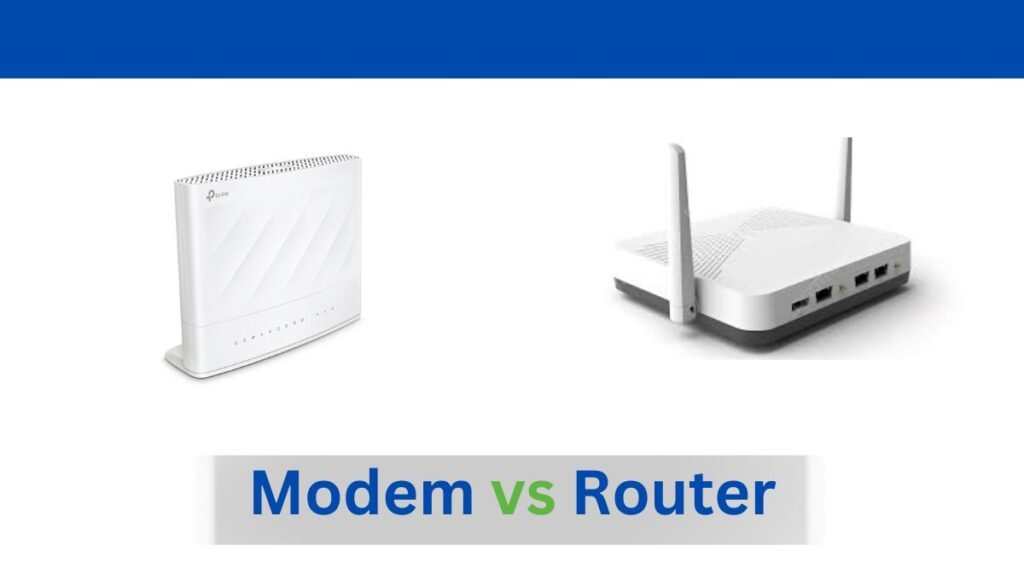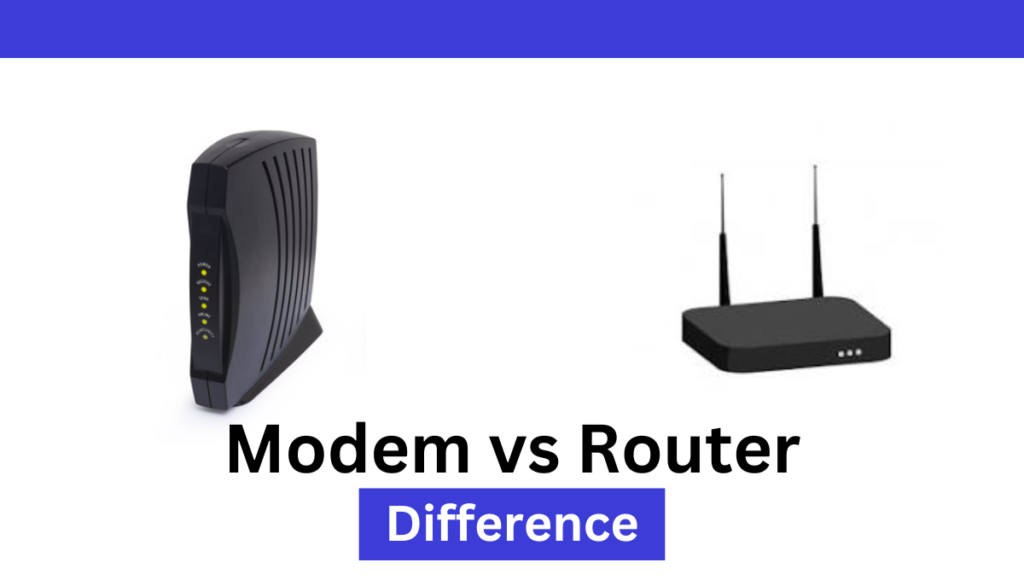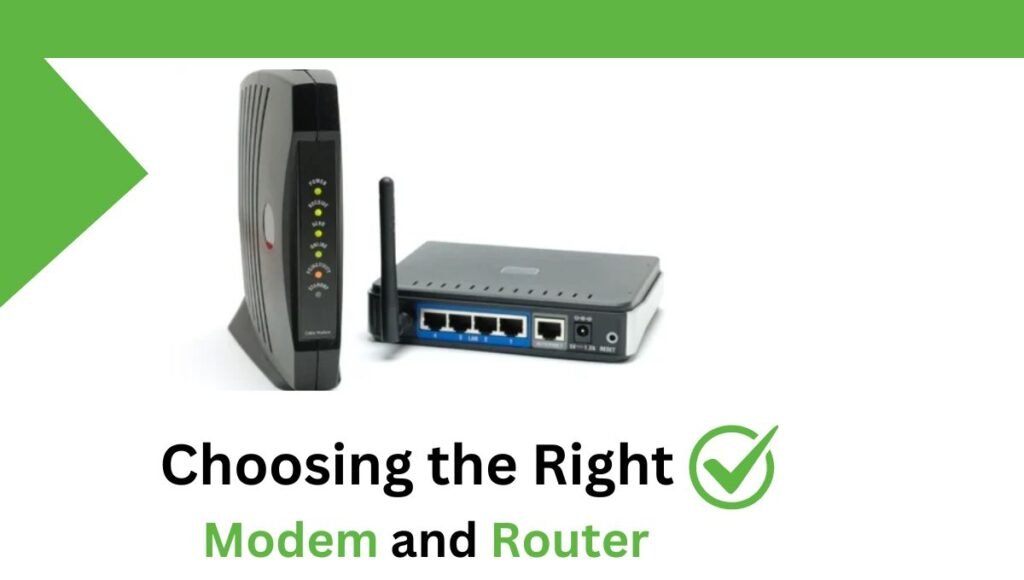Modem vs Router
In today’s with the advancement of technology today, every device in our homes be it a mobile phone, a laptop, a television set or a smart speaker among others requires the internet. In other words, to connect these devices to the web, there is a need for modem as well as router. But in fact, what do these devices do and how do they diverge? If you’ve ever been uncertain whether SNS or OCP means one thing or another, you are definitely not alone. In this article you will learn about difference between modem and router, how they are used together and how to choose the right one Modem vs Router.

What Is a Modem?
A modem is a device used to link your home to your Internet Service Provider shortened as ISP. In its simplest terms, the modem takes the data from your computer or other devices and translates it into a form that can pass through your local ISP’s network may be using phone lines, cables, fiber optics or satellite connection.
Simply put, the modem’s primary function is to help facilitate the flow of data between the internet and your local Area Network. Basically, it receives signals from your ISP then translates those signals to forms that your devices can comprehend to help you connect to the internet. There are different types of modems depending on the type of internet connection you have:
- DSL Modem: Used with a DSL (Digital Subscriber Line) connection, typically through a phone line.
- Cable Modem: Used with a cable internet connection, typically through a coaxial cable.
- Fiber Optic Modem: Used with a fiber optic connection, which offers much faster speeds than DSL or cable.
- Satellite Modem: Used with satellite internet, which is often the only option in rural areas.
What Is a Router?
A router is a gadget that receives internet connection from the modem and then divides the connection into several parts in a home or office. It in a way, sets up a closed network that enables the devices in the network share an internet connection.
There are several types of routers mainly the wired routers also known as Ethernet and the wireless routers also referred to as Wi-Fi routers. This means one can physically plug in a device such as a desk top directly to the router, using a Ethernet cable for a faster and more stable connection but if one wishes to have flexibility in moving around, then one can connect wirelessly using Wi-Fi.
Modern routers also offer a variety of features:
• Dual-band or Tri-band Support: These routers can work at different sub- frequency bands – mostly at 2. 4 GHz and 5 GHz, avoiding overcrowding and enhancing the network’s performance.
• Advanced Security: Most routers come with integrated firewalls and VPN compatibility and filtering capabilities as a way of safeguarding the networks from intrusions and menacing attacks.
• Quality of Service (QoS): Other QoS settings can then be applied to give preference to specific traffic category such as video streaming or online gaming.
• Mesh Networking: Some routers are capable of last node mesh, which is a system of nodes used so as to provide better Wi-Fi coverage to large homes or areas that may have a lot of barriers to signal interception.
Modem vs. Router: The Key Differences
While both the modem and router are essential for connecting to the internet, they serve very different purposes. Understanding these differences is crucial for setting up your home network correctly.

1. Functionality:
Modem: It [the modem] links you to your Internet service provider and enables you access the Internet. This is mainly accountable for translating the signals you get from your internet service provider into usable internet connection.
Router: essentially, the router separates the interconnection provided by the modem and extends it creating what is called a local area network.
2. Connectivity:
Modem: A modem is normally fitted with RJ45 ports, usually one or two Ethernet ports to connect directly to a single device or to a router.
Router: A router typically has more than one Ethernet interface port and sends a Wi-Fi signal and can support many devices at once.
3. Location:
Modem: The modem has to be installed wherever the internet connection comes into your house, for instance proximity to a cable or phone line.
Router: The router must be located at the central point to cover equal access points all over your house or office.
4. Purchasing:
Modem: In this case while some ISPs offer customers with modems, it is equally possible to purchase one on your own. This means owning a modem is economical since you will not pay rent for the modem whenever you need to use it as compared to using one that is provided by an ISP, and it also means that you will have full control over your network.
Router: Unfortunately, the ISPs do not include routers in their packages so you’ll have to buy your own router..
Do You Need Both a Modem and a Router?
Yes, for the most part, definitely, as a modem and a router are needed for a connection to the Internet as well as sharing this connection with numerous devices. The modem allows you to connect your home to the internet while the router provides a means through which your devices can access that connection.
However there are devices that perform both tasks together known as modemrouter which is a single device that serves both purposes. Such devices are portable, and in terms of size they occupy very little space, yet their performance and maneuverability may certainly suffer when using these devices, as opposed to having individual devices. For example, if you live in a big house or need additional networking capabilities, having a separate modem and router will suit you better.
Choosing the Right Modem and Router
When choosing a modem and router, it’s essential to consider your internet speed, the size of your home, and the number of devices you need to connect. Here are some tips:

1. Internet Speed:
o Make sure that the modem that you have is capable of providing the highest internet speed that your ISP offers. If you have a high speed internet plan and you have modem device that cannot support the speed then your high speed plan will be of no use.
o Therefore, choose a router that can handle the speed of the internet connection particularly W-iFi. Choose routers that offer the latest Wi-Fi protocols, including the latest versions of Wi-Fi namely Wi-Fi 6.
2. Coverage Area:
o For large houses, get a router with vast Wireless range or consider the use of mesh network systems to reduce on the black spots.
o If you reside in a small apartment then having a single router with reasonable range should suffice.
3. Number of Devices:
o If you have many devices, then make sure that you find a router that will not lag when many users are streaming. MU-MIMO or Multi-User Multiple Input Multiple Output routers are the best in this aspect.
4. Advanced Features:
o If you are the user who needs high security standards, parental control or VPN support, ensure that your router has these opportunities.
o For gamers or for those that make use of video streaming constantly, be sure to look for the routers that contain the QoS feature that will prioritize traffic..
Conclusion
However, it’s important to know the difference between a modem and a router in order to have a stable home network. The modem is as the brains of the operation and its job is to connect your house to the internet while the router’s job is to make that internet accessible to all the devices in its vicinity. Even though you can have the modem built-in with the router, having them both as different gadgets is wiser for ultimate utilization.
There are essential factors that you have to keep in mind when selecting a modem or a router such as the speed of the internet, the size of the area that will be covered and other features that you may require. This way, anyone can choose the most suitable equipment for receiving promptly, stably, and securely, a network connection for ALL their devices.
NOTE: You can also read


Как избежать дубликатов номеров при регистрации автомобиля, Как разобраться с повторяющимся номером на машине, Проверьте, не является ли ваш номер авто копией другого, Как избежать неприятных последствий из-за повторения номера на машине.
изготовление номеров москва http://www.gosnomer-dublikat.ru .
Эффективные способы избежать повторения номеров, Анализируем причины появления дубликатов номеров, Советы по избежанию дублирования номеров, Почему важно избегать дубликатов номеров, Проблема дублирующихся номеров и их решение, Лучшие практики по избеганию повторений в номерах
изготовление номерных знаков dublikat-znak-automobile.ru .
Научитесь предотвращать появление одинаковых номеров на официальных бумагах, лучшие практики для предотвращения номеров, преимущества избегать совпадение номеров на важных документах, практические рекомендации по избежанию на документах, почему важно по избежанию дубликатов номеров на официальных документах, лучшие практики предотвращения повторения номеров на документах, предотвращение дубликатов номеров: лучшие советы, как избежать повторения дубликатов номеров на документах, лучшие практики по предотвращению на бумагах.
дубликат гос номера дубликат гос номера .